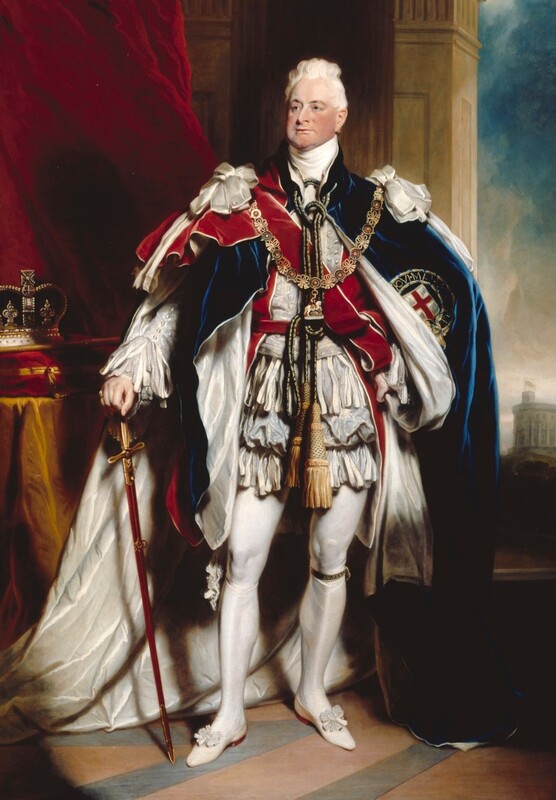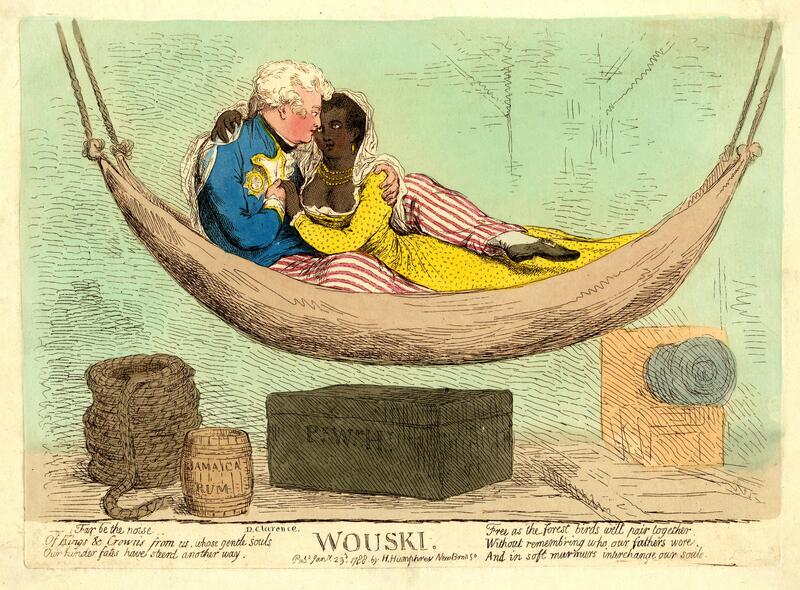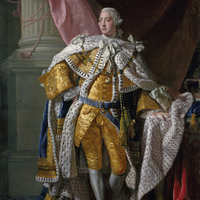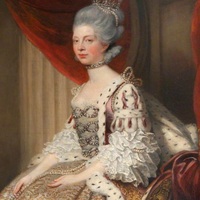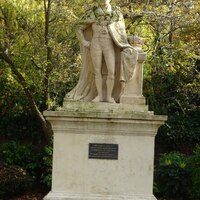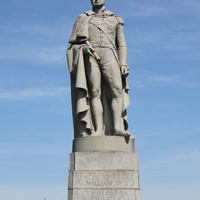How to cite this page Comment citer cette page
William IV
Person
- Media metadata | Métadonnées multimédias
- has biography | a une biographie
-
King of the United Kingdom of Great Britain and Ireland and of Hanover from 1830 to 1837
William III was a prominent opponent of the abolition of slavery, an ally of the West India Committee, and the only member of the Royal Family to step foot in North America and the Caribbean during his service in the Royal Navy. William's time in the Caribbean led to rumours of illicit relationships with African women, which were satirised in racialised and voyeuristic prints like James Gillray’s 'Wouski' (1788) in metropolitan Britain. William's vocal support for chattel slavery is best exemplified by his speech in the House of Lords in July 1799, in which he spoke in defence of 'the rights of the Liverpool Merchant and West India Planter' against 'the spirit of perversion and falsehood'. - was born | est né
- 21 August 1765
- died in | est mort par
- 20 June 1837
- has nationality | a la nationalité
- United Kingdom of Great Britain and Ireland
- has type | est de type
- depicted
- is referred to by | est référencé par
- Wikipedia
- Art UK
- National Portrait Gallery
- Wikisource - 'Substance of the Speech of His Royal Highness the Duke of Clarence, in the House of Lords, on the Motion for the Recommitment of the Slave Trade Limitation Bill, on the Fifth Day of July, 1799' (London, 1799)
- David Conn, 'The British Kings and Queens who Supported and Profited from Slavery', The Guardian, 2023
- Brooke Newman, 'Uncovering Royal Perspectives on Slavery, Empire, and the Rights of Colonial Subjects', Georgian Papers Programme, 2019
- Temi Odumosu, Black Jokes, White Humour: Africans in English Caricature, 1769–1819 (London: Harvey Miller, 2017)
- Michael Taylor, The Interest: How the British Establishment Resisted the Abolition of Slavery (London: Vintage, 2021)
